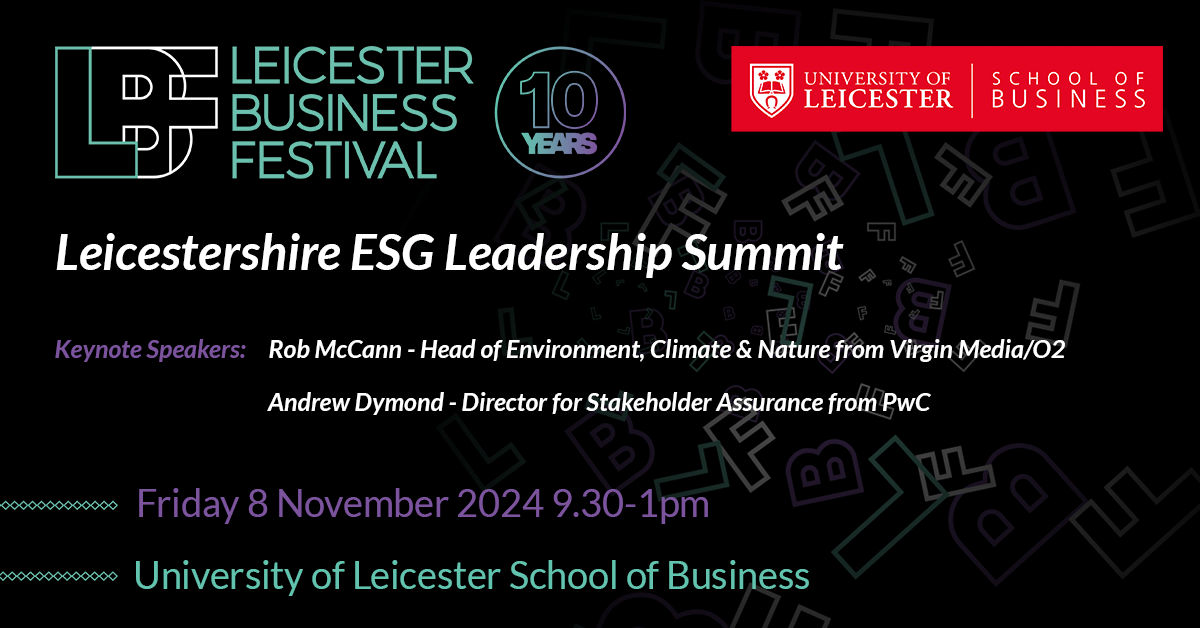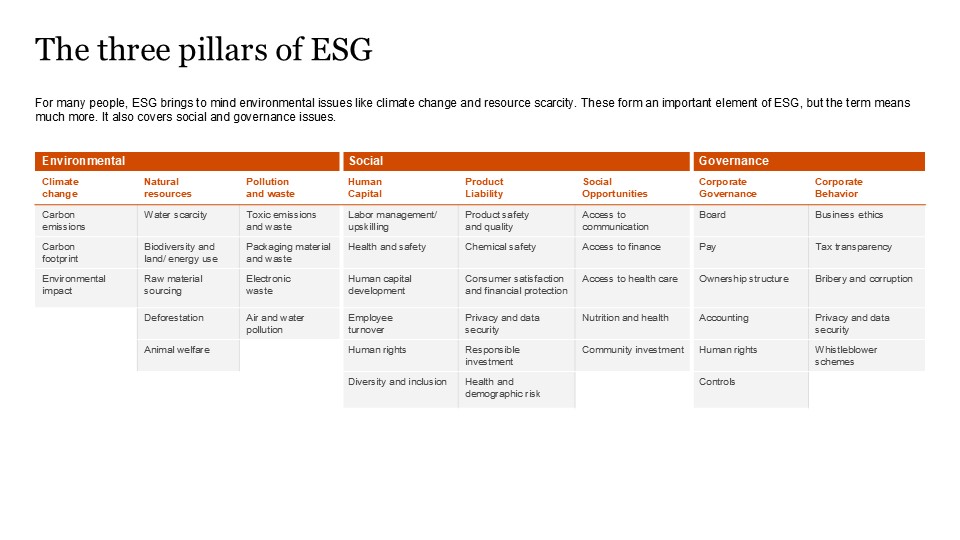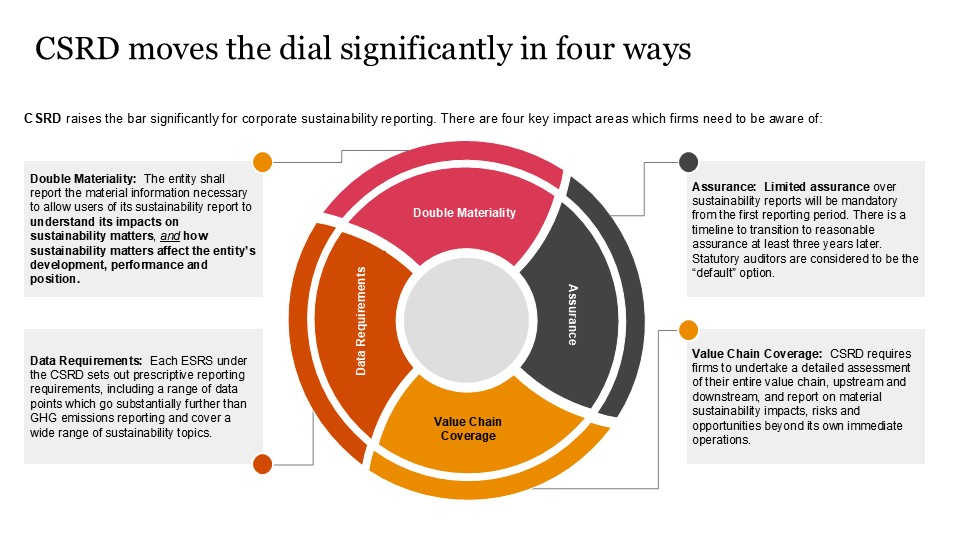What the ESG Leadership Summit Taught Us

At the start of 2024, we were deep in the delivery of the Leicester Growth Accelerator for Social Entrepreneurs – a bold initiative that brought together social enterprises, charities, and corporate players to explore the future of funding, investment, and responsible business. One of our flagship events was the ESG Leadership Summit, held in November in partnership with the University of Leicester School of Business during the Leicester Business Festival.
We didn’t get a chance to blog about it at the time – we were too busy making it happen. But the insights shared, connections forged, and ripple effects sparked deserve proper reflection. So here it is: our long-overdue debrief from one of the most energising ESG events in the region.
Why ESG? Why Now?
ESG stands for Environmental, Social and Governance. It’s a way of looking at how businesses operate beyond the bottom line – and it’s no longer optional. In fact, ESG is fast becoming a must-have rather than a nice-to-have.
Companies are now expected to report on their non-financial impacts. Investors, customers, regulators, and even suppliers are demanding to know:
- How sustainable is your supply chain?
- What’s your carbon footprint?
- Do you pay people fairly?
- Is your governance robust and accountable?
At the summit, we heard from Rob McCann (Virgin Media O2) and Andrew Dymond (PwC), who made it clear: ESG isn’t just about box-ticking. It’s about competitiveness, resilience, and brand strength. And while the regulatory landscape is still evolving, the new UK industrial strategy shows that funding for business growth over the next ten years will be in line with net zero goals and cleaner energy.

What We Learnt from the ESG Leadership Summit
The summit was attended by business leaders, finance directors, social entrepreneurs, and policy influencers. What emerged was a powerful picture of change – and some very practical advice:
- ESG is already affecting supply chains.
One example shared involved a mobile phone retailer in the West Midlands. Their German supplier wouldn’t send handsets unless they had a full lifecycle plan for the phones. That’s like your corner shop refusing to sell you a chocolate bar unless you’ve uploaded your gym routine. - ESG impacts are everywhere – and often hidden.
As Pamela Noakes from M&C Saatchi shared at the launch of Greener Futures, most of their ESG impact comes from the supply chain. If you want to be a preferred supplier in the future, your ESG outcomes need to add to your clients reporting requirements. - Social impact reporting has new relevance.
PwC showed us how annual reports have exploded in size – from 90 to over 200 pages – with 95% of large companies reporting on ESG. And it’s too complex now for any one department to own. This creates real opportunities for community organisations to share their experience with impact reporting. - “Double materiality” means social value is business value.
Companies are now encouraged to report not just what affects their business – but how their business affects the world. That’s a huge opening for social enterprises who have long delivered on the triple bottom line.

Our Role in Putting on the ESG Leadership Summit
This summit wasn’t just a talkshop. It was a strategic intervention.
As Community Enterprise Engine, we worked with the University of Leicester School of Business, the East Midlands Chamber of Commerce, and the ACCA to design an event that would bring the VCSE sector and corporate finance leaders into the same room. And it worked.
Social entrepreneurs from the Growth Accelerator were able to meet procurement decision-makers and finance directors from large firms like PPL PRS and Brewin Dolphin. They had a chance to showcase how the VCSE sector has been living out ESG principles for decades – long before the reporting requirements arrived.
It also gave the University a platform to launch their Greener Futures work and promote their executive education offer in sustainability.
ESG: A Shared Agenda for Community and Business
Here’s what we believe: ESG isn't just about compliance, its about how good businesses value their staff and the communities that they live in.
It’s a shared agenda – one that brings community groups, charities, and companies together to build a fairer, greener, and more accountable economy. Whether you’re reporting to Companies House or measuring your impact for funders, ESG is a language we all need to speak.
That’s why we’ve written an accessible, practical ESG Guide for SMEs and VCSEs – to help you get started or go deeper. It includes:
- What ESG means in law
- Who needs to care and why
- How to improve your ESG ratings
- Steps for carbon footprinting and net zero targets
- How to show up better in supply chains and tenders
If you'd like a copy of the guide, just drop us a message.
